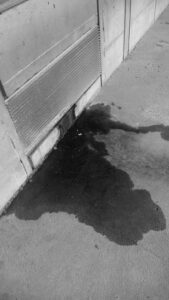You may feel concerned if you notice that water is dripping from your air conditioner. While water is a completely normal part of the cooling process, it should not be leaking from your air conditioner. Leaks can indicate that you have a clog in the condensate drain line.
It is important to call as soon as possible after noticing a leak to schedule air conditioning repair in Boulder. Our team can assess the problem, get it fixed, and even offer suggestions for preventing leaks from happening again in the future. You can keep reading to learn more about your condensate drain line, how clogs happen, and even how to take preventative action to avoid leaks from ever happening in the first place.
What Is the Condensate Drain Line?
When your air conditioner cools air in your home, it also removes some of the humidity from the air. After all, humid air naturally feels warmer. Your air conditioner removes this moisture to help lower the temperature of the air so that it feels cooler.
If humidity stays in the air, it doesn’t matter how low the temperature is. The air will naturally feel warmer than it really is. When this moisture gets removed, it has to go somewhere. That’s what the condensate drain line is for. Humidity condenses down into droplets that drain out of your home via the condensate drain line.
Why Do AC Leaks Happen?
If there is a clog in your condensate drain line, water may leak out. Unfortunately, clogs are very common because the condensate drain line is not very big around. Since it is a dark, moist environment, it is the perfect place for mold to develop.
If mold begins growing inside the condensate drain line, it can spread enough to block water flow and lead to a clog. Aside from mold growth, you also face dust and dirt entering the drain line and contributing to a clog. Water will begin to build up behind the clog until it fills up the condensate drain line and spills back out into your home in the form of a leak.
What About the Drain Pan?
Many homeowners refer to the condensate drain pan when we talk about the significance of leaks. Isn’t that where the condensate drain pan is for–to catch leaks? The short answer is yes. However, leaks are still an issue that you want to get addressed.
All of the water backing up into your condensate drain line is re-evaporating into your air, creating humidity and making the air in your home feel warmer than it really is. Plus if the leak gets worse, then it may overflow out of the drain pan and cause water damage to your home.
How Can I Prevent AC Leaks?
If you have a clog, give us a call to service your air conditioner and break the clog down. Once the clog is gone, there are some steps that you can take to prevent condensate drain line clogs in the future.
The first is changing your air filter out on time each month so that it can adequately capture dust and dirt. If your air filter gets too full, dust and dirt can leak through and enter your air conditioner, ultimately reaching the condensate drain line, too.
And you can also pour half a cup of vinegar into the condensate drain line once each month when you change out the air filter. Vinegar helps to prevent mold and mildew from growing in the line. If some mold spores have already begun developing, the vinegar will help rinse them away. It is important to do this every single month so that mold doesn’t have an opportunity to spread too much within the drain line.
Contact Meyers Heating & Air Conditioning today to schedule an appointment with our professionals.


